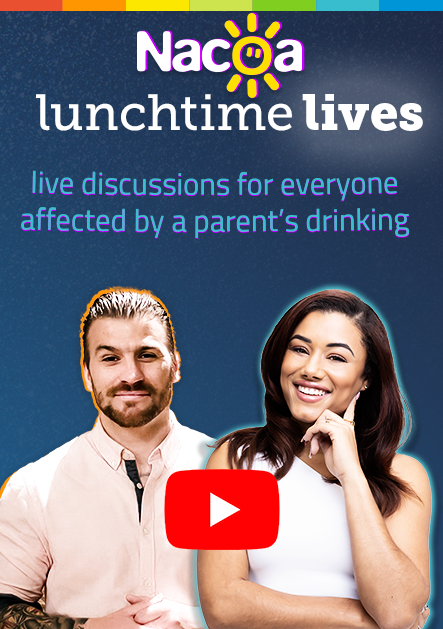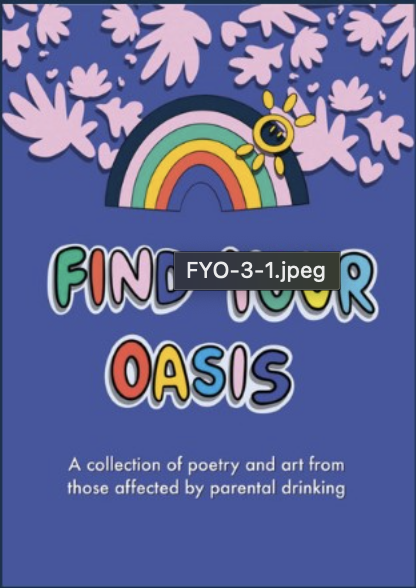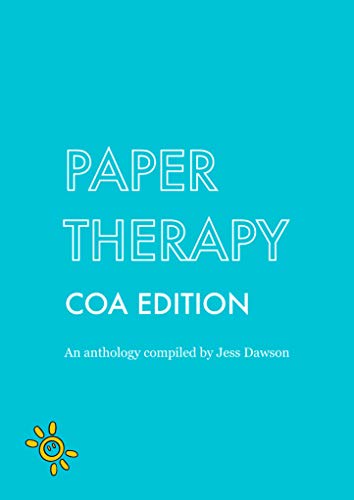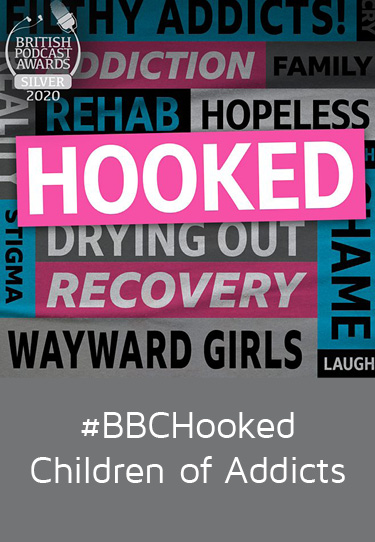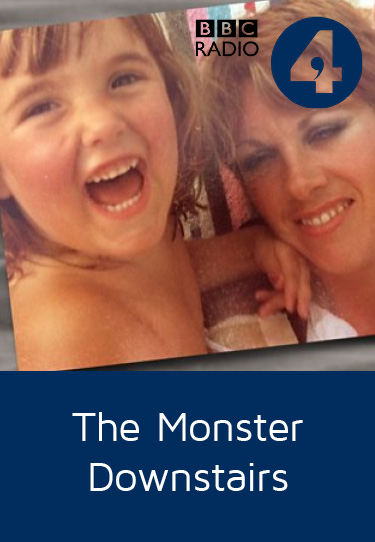FAQs
Below are some questions commonly asked by people worried about a child or adult affected by their parent’s drinking. If you have a question that isn’t listed, please ask us.
How many people are affected by their parents’ drinking?
Research suggests that 1 in 5 children in the UK live with a parent who drinks hazardously. The effects of parental alcohol misuse don’t just disappear once children reach 18 or move away from home. Millions of adults in the UK are still being affected. For more information about the scale of the problem, see Research.
How do parental alcohol problems affect the family?
Alcohol problems don’t only affect the person drinking but also everyone around them, including family, friends and colleagues.
As the alcohol-dependent parent organises his or her life around alcohol, the family also focuses on the drinking. This can leave other family members, particularly children, feeling unimportant and confused.
Living with addiction can be chaotic and lead to other problems. Witnessing or experiencing violence, mood swings, and unpredictable behaviour often leads to feelings of fear, anxiety, guilt and shame.
Families affected by alcohol problems are also more likely to experience a shortage of money as alcohol takes priority over basic needs.
Family roles can change, resulting in children taking on additional responsibilities such as cooking, cleaning and caring for their parents or siblings. This altered family system can contribute to an increased risk of abuse.
Children of alcoholic parents are more likely to suffer from low self-esteem and depression and to consider suicide, often turning to drinking, drugs and addictive behaviours, such as eating disorders, to cope. The effects can persist into adulthood.
Despite this, many grow up to lead happy and healthy lives. Awareness of the problem and feeling supported can make a huge difference. See information to learn more about how alcohol affects the family.
How can I help someone affected by their parent’s drinking?
- Most importantly, just being there and understanding can make a difference. Don’t underestimate how important it is for them to know that there is a reliable and caring adult or friend who is there for them.
- Listen non-judgementally. Reassure them that it is OK to talk about their feelings. Knowing there is a safe place to talk if they need to can help. Try not to criticise their parents and remember how difficult it can be to speak out about the ‘family secret’. Don’t make plans you can’t keep. Stability and consistency in relationships are necessary to build trust.
- Give them space to be themselves and do things they enjoy. Sometimes, when a parent has an alcohol problem, worries can take over. Taking a break can help.
- Find out more about alcohol problems and how they affect families. In turn, you can support them to understand the problem better. This can help them realise it is not their fault and they are not alone. Perhaps you may like to look together at the relevant Information page for Children, Young People or Adults.
- Pass on details of Nacoa. Even if they don’t want to talk right now, sometimes just knowing a national charity exists can help them see it is a ‘real problem’ and they are not alone.
- You can also help them find other sources of support or ask us to research on your behalf. Don’t try to counsel them unless you are trained to do so.
- For more ideas on how you can offer support and key messages to get across, see Help & advice.
How can I identify children of alcohol-dependent parents? What signs should I look out for?
It is important not to label children, as we are often not aware of all the nuances of their home lives. However, there are things you can look out for that may indicate they are being affected by a parent’s drinking. For example, they may show changes in behaviour and personality or seem anxious at times that other children would look forward to. For identifying symptoms, see Information.
What is alcoholism / alcohol use disorder?
Alcohol problems are like an illness where people have lost control over their drinking. They may intend to have one or two drinks but end up drinking more.
Alcohol dependence can be characterised by a compulsion to drink, spending increasing amounts of time drinking, thinking about drinking and recovering from drinking, and unsuccessful attempts to stop or cut down. People suffering from alcohol problems can become physically dependent on alcohol, needing to drink to get rid of unpleasant withdrawal symptoms.
People usually need help to tackle their problem drinking. When someone is physically dependent on alcohol, it can be dangerous to stop drinking suddenly. For more information about alcoholism, click here.
What is denial?
Denial often goes hand-in-hand with addiction and is not the same as lying. The drinker believes that alcohol is the solution to problems and doesn’t see their drinking as problematic. They may blame other people for their drinking and find ways to excuse their behaviour.
Denial can spread into all areas of life as a way of coping and hiding the problems from themselves and others. Sometimes family members can also be in denial as a way of coping, pretending the problem doesn’t exist or keeping it hidden from the outside world.
Is there a cure for alcoholism?
Alcohol problems are treatable – people can find help for their drink problems and go on to live healthy lives.
For some people, this is possible by not drinking alcohol at all. This is often referred to as ‘being in recovery’. Many do this with the aid of self-help groups, such as Alcoholics Anonymous.
Some people need medical help and go into treatment or rehab, where their physical and psychological dependence is addressed over a series of weeks, months and sometimes years. Some rehab centres offer a residential programme, followed by supported living before returning to the family. Others offer a daily programme where patients continue to live at home.
Funding for treatment is sometimes available from the local authority following a referral by the GP. Other treatment programmes are fee-based.
I’m concerned about someone’s drinking, how can I broach the topic with them?
Try talking when they are least likely to have been drinking and you are in a safe place. Try not to judge them. Focus on how you are feeling, rather than their actions.
Please don’t expect too much, and remember how powerful denial can be; the drinker often believes alcohol is the solution to problems and does not see their drinking as problematic. For suggestions, see Talking to Someone About Their Drinking.
How can I stop someone from drinking? What can I do to help a problem drinker?
When someone has an alcohol problem, they have lost control over their drinking. Help is available, but the person drinking has to accept that they have a problem and want to stop. Their behaviour is not your fault, and you can’t control their drinking. Look after yourself and avoid arguing with them when they are drinking.
Spend some time finding out about alcohol problems. You don’t need be an expert. Being there and caring can help, but it may be beneficial to have an understanding of alcohol problems as an illness where control over drinking has been lost.
You could also find out about support available for people with alcohol problems so that, if they become receptive to the idea of seeking help for their drinking, you have information to hand. Nacoa will happily research relevant sources of support. However, please remember that it has to be their decision to access help. No one can be forced into treatment without their consent. This may be difficult for the family to accept, however, talking to their GP can still be helpful to find sources of support for themselves.
Where can people with drink problems get help?
Support is available for people with drink problems, but they have to accept that they have a problem and want help. For information on where people can get help for their drinking, when they are ready and willing, see Help for People with Alcohol Problems.
What help is available for other family members?
We are here for everyone affected by someone else’s drinking. They can call or email Nacoa. Our volunteer helpline counsellors understand what it can be like when someone close to you has an alcohol problem.
There are support groups across the UK that many family members find helpful. They can meet others in similar situations and learn new coping strategies. At Nacoa, we will happily research sources of support in the caller’s local area.
For more sources of support, see the Help & advice section for Children, Young people or Adults.
Are children of parents with a drink problem more likely to develop a problem too?
The development of alcohol problems depends on a complex mixture of genetic and environmental factors. Work by geneticists suggests that genes do play an important role by affecting processes in the body and brain that interact with an individual’s life experience to create protection from or susceptibility to alcohol problems. It’s also thought that alcohol use at an early age may increase the risk of alcohol dependence and that people who have a family history of alcohol problems are more likely to begin drinking at an earlier age than average.
Nacoa’s research study suggests that people who grew up with parental alcoholism are almost three times as likely to develop a problem with alcohol themselves compared to the general population. This does not mean that every child will end up drinking like their parents. However, continuing to follow the don’t talk, don’t trust, don’t feel rules can lead to a limited support network and promotes drinking or ignoring problems as a way to cope with life’s challenges.
People who grew up with parental alcohol problems often report an uneasy relationship with alcohol. Some people make a decision not to drink alcohol at all whilst others are able to drink socially. Many people worry they will turn out like their parents. Being aware of the risk factors (genetic and environmental), looking after themselves and adopting healthy ways to cope, such as talking about their worries, can help.
Where can I find out more about alcoholism and the effects on the family?
To find out more, see our Information section. You may also find it helpful to look at our Research section for information on studies into the problems faced by children who grow up around alcohol problems and what can help.
Someone I know has a drink problem and I’m worried about their children, what should I do?
You could try telling the person how you are feeling and why. Try talking when they are least likely to have been drinking and you are in a safe place. Try not to judge them and keep your language as neutral as possible. Remember to focus on how you are feeling, rather than their actions.
Another possible source of support could be talking to their immediate family (if you know them) and expressing your concerns. If you are concerned about the children’s welfare, others may be worried too.
You can always contact Nacoa and speak to one of our volunteer helpline counsellors who understand about situations like this. If you have a concern about their children’s safety and wellbeing, you can also phone the NSPCC (0808 800 5000) or your local duty social worker in Children’s Social Care (you can remain anonymous if you prefer). You can find your council’s contact details online or in the phonebook. Talking to a professional can help clarify whether there is something to be worried about or not.
Let children know that if they are frightened, they can contact Nacoa or ChildLine (0800 1111) for help. They can always talk to Nacoa anonymously.
What should I do if I think a child or vulnerable person is at risk of being harmed?
You can always contact Nacoa where our volunteer helpline counsellors are on hand and understand about situations like this. If you have a concern about a child’s safety and wellbeing, you can also phone the NSPCC (0808 800 5000) or your local duty social worker in Children’s Social Care (you can remain anonymous if you prefer). You can find your council’s contact details online. If you know them through your profession (e.g. teacher, youth worker) you should also have your own set of guidelines to follow concerning child protection.
What should I do if the parents are worried about social services getting involved?
Social services are there to help keep families together wherever possible. They promote the welfare of children, listen to them, and take their views into account. They should work in partnership with parents to think of the needs of all family members. If you or the child’s parents have questions about the role of social services, you could try speaking to the duty social worker anonymously for some advice.
Where can I get advice regarding taking care of a family member or friend’s child?
Simply by being there as a caring adult and someone the child can talk to, you can make a difference. It can also be helpful for them to have somewhere to go for some quiet time to do homework etc. or somewhere safe to go when things are bad at home.
Sometimes, occasional visits can become more frequent or you wonder if the child could come and live with you permanently. Many children in the UK are being cared for by a relative, friend, or other person previously connected with the child, known as family and friends carers. Sometimes this happens through an informal arrangement with the child’s parent and at other times children are placed with a family member or friend by the local authority. The most common reasons for family members and friends taking on care of children are those related to parental factors such as domestic violence, alcohol or substance misuse, mental or physical illness, separation or divorce, imprisonment, or the death of a parent.
Who maintains parental responsibility for the child, support available to carers, and the legal requirements vary depending on the circumstances, so it is important to get advice if this is something you are considering.
The Coram Children’s Legal Centre provides free independent legal advice to children, parents, carers and professionals. Their Child Law Advice Line (0808 802 0008) covers all aspects of law and policy affecting children.
Family Rights Group provides a free telephone advice line (0808 801 0366) and email advice to family members who are involved with Children’s Services about the care and protection of their children. The website includes information for Family and Friends Carers and people thinking about caring for a child they know.
The Fostering Network is a national charity which works with everyone involved in foster care. Fosterline (0800 040 7675) is their confidential advice line providing independent, impartial advice about fostering issues for prospective and approved foster carers.
You could also contact Citizens Advice or, to find a solicitor in your area who specialises in family law, see The Law Society.
Many children feel responsible for their parents and worry about what might happen if they weren’t there to look out for them (or for other siblings). Try to communicate openly with the children and consider their feelings. See Help & advice for ideas on how you can offer support and key messages to try and get across.
Where can I get advice regarding separating from my partner and contact/custody arrangements?
Alcohol problems can affect all relationships and sometimes people decide that the best option is to end the relationship. Clearly, this is a difficult decision and it is important that you and your children have support. Nacoa is here for everyone affected by a family member’s drinking. You can talk to our volunteer helpline counsellors in confidence. Whilst we can’t tell you what is right for you, talking or writing about how you are feeling can help make sense of what’s going on and help you work out your options.
When parents separate or divorce, problems can arise regarding custody of the children or arrangements to see the other parent (contact). Children can end up feeling caught in the middle. Try not to criticise the other parent to your children and encourage them to talk about what they would like to happen. When someone has an alcohol problem, drinking can take priority above everything else, even those they love. This can leave children feeling confused, isolated and disappointed. Explaining to children that alcohol problems are like an illness and it is not their fault can help children cope if the relationship with their drinking parent is inconsistent. In some situations, people may decide it is best that visits with children take place with another family member or friend present.
For legal advice regarding living and contact arrangements for your children, you can contact Citizens Advice who provide free, confidential and impartial advice. Their Relationships pages provide information on what to do if your relationship has broken down. The Coram Children’s Legal Centre provides free independent legal advice to children, parents, carers and professionals. Their Child Law Advice Line (0808 802 0008) covers all aspects of law and policy affecting children. Also, you can usually have a free or cheap initial consultation with a solicitor to see if legal involvement would be helpful. To find a solicitor in your area who specialises in family law, see The Law Society.
My son / daughter is alcoholic, how can I help my grandchild?
Being there makes a difference. Don’t underestimate how important it is for grandchildren to know they have a caring grandparent in their life. Listen non-judgmentally and reassure them that it is okay to talk about their experiences and feelings. Try not to make negative comments about their parents. Alcohol problems are not about lack of love or willpower and children do not want their parents to be judged. Help them understand that someone else’s drinking is never their fault. Show them information on Nacoa’s website or pass on one of our leaflets.
Remind them that they are important. Encourage them to be themselves and spend time doing things they enjoy. This could be gaming, meeting up with friends or even just reading a book or watching TV. You could help them to find an after-school, youth or sports club, or an activity for the holidays. These provide opportunities to develop relationships with safe people in activities outside the home and support their independence.
If you can, offer practical help such as picking up your grandchildren from school, or have them stay with you to give them time away from their parents. If distance and time are issues, just being there on the phone, Facetime or other forms of contact can make a world of difference.
Do not use your grandchildren against their parents. This might cause your grandchildren to stop sharing feelings with you in the future and places them in an impossible position with their parents. If you wish to speak with your son or daughter about their drinking, try to do so when your grandchildren are not present. See How to help an alcoholic for more ideas on how to talk to someone about their drinking.
Remember to look after yourself. Knowing your son or daughter and grandchildren are living in a difficult situation can be distressing. If someone has talked about upsetting or abusive situations, it is natural to feel shocked or angry. Make use of appropriate support networks to take care of yourself. You are playing a critical role in your child’s and grandchildren’s lives. Nacoa is here for you all. You may also find Al-Anon Family Groups, Adfam, DrugFAM, and Kinship helpful.
How can I help a child who is worried about a parent dying or is grieving for a parent who has died?
Not everyone with a drink problem dies but, sadly, sometimes this can happen. This can be very worrying for family members, particularly for young people. The idea of a parent dying is scary for everyone, and when alcohol is involved it can bring up a huge range of difficult feelings. Sometimes people feel it would be better if their parent did die as it would end their suffering, but then feel guilty for having these thoughts. Feelings of abandonment, anger, relief, blame, guilt and many other emotions may be present. When the family is unable to talk openly about issues, it can make it harder for them to support each other at difficult times. The death of a parent with alcohol problems may also create tension for the rest of the family.
Having a caring adult around at this time is really important; just being there and listening can help. You may find it helpful to read our Helping Children Cope with the Death of a Parent information sheet. This includes details of other organisations that can also help people cope with bereavement.
What is Foetal Alcohol Spectrum Disorder (FASD)?
Drinking alcohol during pregnancy can affect the baby’s development and cause Foetal alcohol spectrum disorder (FASD). FASD leads to lifelong mental and physical problems, including problems with:
- movement, balance, vision and hearing
- learning, such as problems with thinking, concentration, and memory (FASD is the most common cause of intellectual disability)
- managing emotions and developing social skills
- hyperactivity and impulse control
- communication, such as problems with speech
- the joints, muscles, bones, and organs, such as the kidneys and heart
The severity of symptoms is related to the amount and frequency of alcohol consumed.
For more information and support, see The National Organisation for FASD.
Who can I turn to for support for myself?
Nacoa is here for children, adults, concerned others and professionals alike. You can contact us at Nacoa and speak to one of our trained helpline volunteers. It can be helpful to talk through the situation and how to explain alcohol problems to others or to use the helpline as a sounding board for what to do.
We can also research local sources of support, e.g., support groups for family members and friends of people with drink problems.
If you are a professional, perhaps you also have a support or supervision system at work where you could find further help and advice.
I don’t know what to do. Can Nacoa help me?
We hope that this website will help you in supporting someone affected by their parent’s drinking. Nacoa is here for children, adults, concerned others and professionals alike. Please contact the Nacoa helpline by phone or email and speak to one of our volunteer helpline counsellors. We are here to help.
Where can I read about other people’s experiences?
The Experiences section of the website includes experiences of children, young people and adults affected by their parent’s drinking, as well as the experiences of concerned others. Having insight into what it can be like for children affected by their parent’s drinking can help you to support them.
Are there any leaflets/books that I can give to people?
The Publications section of this website has many helpful materials that you can download. Alternatively, email us with your requirements and your postal address and we will happily send an information pack to you. Leaflets and posters are provided free of charge, although as a charity relying entirely on voluntary donations, contributions are always welcome. You may also find our suggestions of Books and videos helpful.
How can I raise the topic of alcoholism with children?
It is estimated that 1 in 5 children live with a parent who drinks hazardously, so it is important not to demonise people with drink problems when talking about this issue. Children do not generally want to be singled out so discussing alcohol problems and the impact on families with a group as a whole can help increase everyone’s understanding of the problem, whether they are directly affected or not.
The Information page for Young people can help you in finding age-appropriate language to talk about alcohol problems. It can be helpful to relate to real-life events or things on TV, in books etc. to get the conversation started. There are suggestions of videos that you could watch together. You may also find our music video “A change is gonna come” to be a good starting point, which lets people know they are not alone. This is a complex problem so people can easily feel overwhelmed. Try to keep it simple and talk about it in manageable chunks.
It can be useful to have a selection of Nacoa’s leaflets to hand and perhaps create a display board. The Publications section of this website has many helpful materials that you can download. You can also email us with your requirements and your postal address and we will happily send an information pack to you. If you are interested in raising awareness of this problem, you may like to tie in with our annual awareness campaign COA Week.
How can I organise a presentation about parental alcohol problems and the effect on the family?
Nacoa have trained volunteers across the UK who are able to deliver presentations about the issues surrounding parental alcohol misuse and the valuable work that Nacoa does in addressing this, still somewhat taboo, problem. To enquire if this would be possible in your area, please email us.
Do you have assemblies/lesson plans?
If you are interested in planning a lesson or assembly looking at the problems faced by children whose parents drink too much and what can help, you may like to tie it in with our annual awareness campaign COA Week. We are currently putting together some lesson plans. For more information, please email us.
How can I get leaflets, posters etc?
Please email us with your requirements and your postal address and we will happily send an information pack out to you. Leaflets and posters are provided free of charge, although as a charity relying entirely on voluntary donations, contributions are always welcome.








